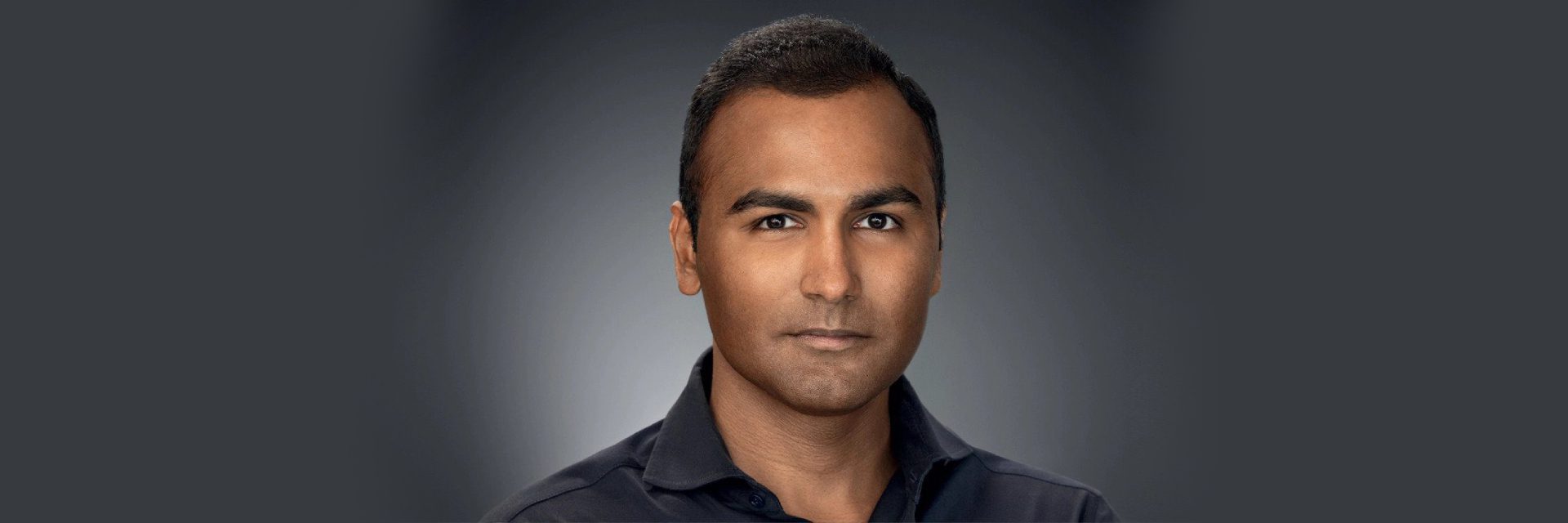(March 2, 2024) A few years ago, prominent Indian American investor Frank Islam, donated $2 million to his alma mater, Aligarh Muslim University. An ace philanthropist, Islam and his wife Debbie established the Frank Islam and Debbie Driesman Charitable Foundation in 2007 and have transformed millions of lives with their initiatives. Frank is the chairman, CEO, and founder of FI Investment Group LLC (FIIG). He has served on numerous boards and advisory councils supporting the arts, higher education, and civic engagement, including the John F. Kennedy Center for the Performing Arts, Strathmore Center for the Arts, UN Foundation’s Global Leadership Council, Harvard University, Kennedy School of Government, the U.S. Institute of Peace, American University; Johns Hopkins University, George Mason University; and the University of Maryland Smith School of Business among others. Frank is also the founding chairman of Potomac Charities. In 2022, he was appointed as a member of the Commission on Presidential Scholars by President Joe Biden.
A series of striking images featuring Frank Islam alongside prominent world figures such as Biden, Barack and Michelle Obama, Narendra Modi, and Bill and Hillary Clinton open the documentary narrating Frank’s multifaceted life. The journey of the investor who is also a philanthropist, civic and thought leader, author, TV host, political activist, and art connoisseur, immediately captivates viewers’ attention.
His powerful words, serving as the background voiceover in the documentary, draw the audience further into his compelling story:
My story can only happen in America, not anywhere else. I was not born with a silver spoon. I grew up in a middle-class family. I always had the desire, joy, and discipline to take risks and become an entrepreneur. I always believe that if you work hard, if you try to aim high you will be successful.
From Azamgarh to America
Frank’s journey began in a quaint village in Azamgarh, Uttar Pradesh. Born in 1953 as Fakhrul Islam, he hailed from a religious family of modest means. After completing his high school education in Varanasi, he went on to study at Aligarh Muslim University (AMU), an alma mater that he holds in high esteem and fondly refers to as ‘a great influence in his life, his story, and his journey.
During his time at AMU, Frank developed a deep appreciation for education, viewing it as a transformative force that not only provided knowledge and skills but also instilled dignity and hope. His love for education motivated him to go to the United States, where he earned his bachelor’s and master’s degrees in computer science from the University of Colorado in Boulder. There, he also got his name Frank from one of his professors.
From the dusty streets of Azamgarh to Aligarh to America, I crossed the ocean to realize and to achieve and to attain the American dream.
Islam had remarked later in an interview

Frank Islam with the US President Joe Biden
Taking life in his stride
Despite initial challenges of assimilating into American society, Frank remained grateful for the opportunities the country provided, and excelled with his hard work.
After graduating from university, Frank entered the workforce, gaining experience in various IT companies, while nurturing his ambition to become an entrepreneur. In late 1994, he founded the QSS Group, mortgaging his house to invest in his business. The transition from employee to entrepreneur was daunting at first, but he stayed positive and took the difficulties in his stride.
Under his leadership, QSS Group grew from a one-person operation into a company with more than 3,000 employees’ generating revenues of approximately $300M before its sale.
I started my business in 1994 and those were dark and desperate days of my life. I was only with $500 that I invested into this company, with no insurance, and no place to go. But I believed there was a future. Otherwise, I would’ve never started. So, I was willing to take the risk. And I always believed in taking a risk.
With decades of experience in IT, aerospace engineering services, and systems integration, Frank successfully made a mark for himself and received recognition in the form of the Ernst and Young Award, Maryland Entrepreneur of the Year award in 1999 and the U.S. Small Business Administration award in 2001.
He sold QSS Group, and established FI Investment Group LLC (FIIG) in 2007. FIIG specialises in offering growth capital to emerging companies and overseeing specialised and branded funds. Frank’s investment approach revolves around pioneering strategies for value creation, often leading the way as an early investor in new economic models.
Creating a powerful network and legacy
Frank Islam has played a significant role in supporting the presidential campaigns of Barack Obama, Hillary Clinton, and Joe Biden, dedicating time and raising millions in funds. As a member of Hillary Clinton’s finance committee, he personally contributed one million dollars to her campaign.
Politics has designed the landscape of America. This is how capitalism grows as democracy flourishes. And this is how you have a voice that should be heard, and therefore you have a seat on the table, which is very important.
Frank remarked in an interview
He has cultivated robust friendships with a network of leaders from not just politics but also business, education, and the arts.

Frank Islam with Barack Obama
Matters of the heart – Norton Manor
Frank Islam hosts several charitable events at his residence, ‘Norton Manor’ which the Global Indian has built with love as a tribute to his adopted country. Drawing inspiration from The Elms of Newport, Rhode Island and many other iconic sites, his mansion’s façade boasts grandeur. Inside, the foyer features a domed ceiling reminiscent of the Capitol Rotunda or Statuary Hall, while the hand-painted murals depict Maryland landscapes. Norton Manor’s library has an exact replica of the iconic presidential desk at the Oval office, which has even garnered appreciation from both Biden and Obama who have been for fundraisers at the house.
Situated on a sprawling 10-acre estate in Potomac, one of the richest suburbs of Washington, ‘Norton Manor’ has several man-made water streams, fountains, and gardens inspired by historical landmarks such as Hampton Court Palace in England and the Rose Garden at the White House. Additionally, the property includes a reflecting pool in the front. Talking about the pool Frank Islam had remarked, “I got the idea from the Presidential Palace in India. The Taj Mahal also has a beautiful reflecting pool. It is indeed very nice in the evening; you can see the reflection of the house in the pool.”

Frank Islam’s mansion, Norton Manor
Love for words – writing, speaking, and broadcasting
Frank is both a prolific writer and influential thinker. He is also the author of books: Working the Pivot Points: To Make America Work Again (2013) and Renewing the American Dream: A Citizen’s Guide for Restoring Our Competitive Advantage (2010). He has been actively sharing his knowledge and expertise through blogs at The Medium, and has contributed to The Huffington Post for a decade. He has also been associated as columnist for publications like Foreign Policy, The International Business Times, and Economic Times, among others. Additionally, the man with a gift of gab has hosted TV shows like the Washington Current Review on FOX 5 News and Washington Calling on South Asia Monitor (SAM).
In 2018, he founded the Frank Islam Institute for 21st Century Citizenship to tackle the growing deficit in civic engagement both in the United States and globally. Redefining citizenship in light of contemporary challenges and opportunities, the institute operates a website and releases a monthly newsletter.
Frank also has a YouTube channel where he hosts talks with leaders of different fields and also shares his speeches given at various business, education, and non-profit events.

Frank Islam at the inauguration ceremony of the Frank & Debbie Islam Management Complex
Giving Back
Deeply committed to serving his homeland, with the belief that education is the key to eradicating poverty in India, particularly among Muslim minorities, Frank has established a school in Azamgarh in memory of his mother.
Through the Frank Islam & Debbie Driesman Charitable Foundation, he supports the education of numerous students from Azamgarh at AMU and facilitates job opportunities for AMU students in the United States. His financial contributions to AMU have led to the establishment of the Frank & Debbie Islam Management Complex at the university.
It is my fondest hope, and my deepest desire, to help those who are so voiceless. The conditions that they live in – especially in Azamgarh and Aligarh – break my heart. I want them to have hope, aspirations and dreams.
Frank shared in an interview
For his dedication to philanthropy in education and student support, Frank Islam received an honorary Doctor of Science degree from Aligarh Muslim University in 2016, joining esteemed recipients like A.R. Rahman (2009), Dilip Kumar (2002), and the late Dr. A.P.J. Abdul Kalam (2008).
Significant accomplishments and associations
- A conference room at the United States Institute of Peace is named after Frank Islam and his wife, Debbie Driesman
- In September, 2013, the then U.S. President Barack Obama had appointed him to the board of trustees of the John F. Kennedy Center for the Performing Arts
- He has received several awards in his illustrious career – The Indus Entrepreneurs (Tie) Legends Award, Martin Luther King Jr. Legacy Award for International Service, Montgomery County Business Hall of Fame Award, Interfaith Leadership Award, Global Leadership Award, Philanthropist of the Year Award, and the UP Ratna Award (by the Government of Uttar Pradesh, UP, India)
- Frank Islam serves on the boards of non-profit organizations like TiE-DC and Strathmore Center for the Arts in Maryland, chairs the StateDemocracy Foundation, and supports the Center for American Progress, a progressive public policy research and advocacy organization in the U.S.
Follow Frank Islam on LinkedIn, Twitter, Facebook, YouTube and his Website
Also Read: Driven by compassion: Firoz Merchant offers second chances to those behind bars in the UAE




